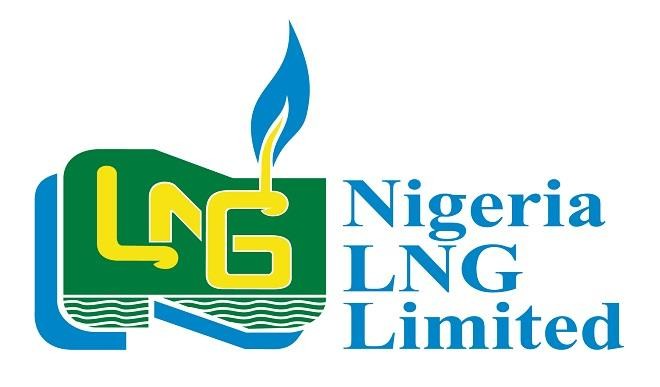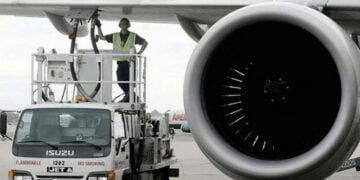The fierce cross-examination ongoing in the N5bn claims case by Macobarb International Ltd against the Nigerian Liquified Natural Gas Limited (NLNG) entered a new dimension when lead counsel to the defendants, Prof Bayo Aderelegbe, demanded that the second claimant, Shedrack Ogboru, should read out to the open court anywhere the contract signed by both parties warranted the N5 billion claims he is pursuing in court.
Macobarb International Limited, an indigenous contractor had dragged the NLNG to a Rivers State High Court claiming over N1 billion (now amended to N5.074bn) for alleged breaches to a contract (B130142PPI, Access Control) in the NLNG plant area with three years duration.
The suit said the contract provided that Macobarb be paid bit by bit progressively based on the value of verified work done.
This afforded the claimant (Ogboru) to read thus: “Exhibit YJ ’12’ (contract agreement) in Section 1 subsection 3.0 in pages 3-4 states: ‘In consideration of the due performance of the works by the contractor and the performance of its other obligations under the contract, the Company shall pay to the contractor all sums in accordance with Section 8 (Schedule of Rates and Prices), as well as other sums or amounts as may become payable to the Contractor pursuant to the provisions of the contract, (herein called the Contract Sum)”.
By this provision, he went on, having given the Defendant notification on the 30th of July 2014 of having placed the contractor (equipment and personnel) idle by repeated payment denials which were computed and explained in open court by a forensic accountant at N5 billion as at February 12, 2024, and still running. He said this provided punitive claims against any party that caused delay of work.
Prof Aderelegbe again asked Ogboru to show anywhere approval was given for ‘work done’ but not paid for. To this, Ogboru, CEO to the first claimant (Macobarb International), pointed at Exhibit YJ ‘6’, titled ‘Notes of Progress Review Meeting No. 8’ dated 25th June, 2014, showing the various percentages of work done in engineering design, procurement, and construction in the overall summary of work progress as of March 10, 2014 signed by the Contract Holder, Dweller Francis, and which Interim Certificate of Payment was not signed. He said this was as an example of first and second milestone certificates approved by the Contract Holder as evidence of work done that should be paid by NLNG, saying that action was carried out by the intervention of Bayo Adenrele, Head of Project Support Service, who he said was not in any way authorized to truncate the execution of the project. He said Adenrele willfully did so, without the NLNG intervention to stop him.
The fireworks began when counsel for Macobarb, Nwieke Dignity, pleaded to tender documents relevant to the case before cross-examination. Prof Aderelegbe, counsel for NLNG, however argued that the documents should have been tendered earlier.
Chiwendu Nwogu of Rivers State High Court ruled that the day was for continuation of cross examination and that this should continue. The claimants’ counsel however later told the court that he wished to recall his witness (Ogboru) to the witness box for the purpose of laying foundation for admitting some documents that were not yet admitted.
The case, which centres on allegations of contractual breaches, remains highly contentious.
At the heart of MACOBARB’s claim is the assertion that NLNG’s failure to adhere to payment terms caused financial difficulties and equipment downtime.
During further cross-examination, the witness (Ogboru), when asked if he experienced cash flow issues, maintained that Macobarb experienced cash flow issues but that these were induced by NLNG’s refusal to make payments as stipulated in the contract agreement.
Despite facing financial strain, the witness denied seeking external financial assistance, although correspondence under the Nigerian Vendor Finance Scheme (NDFS) was presented as a request for support from NLNG.
A significant point in the proceedings was the presentation of Exhibit YJ6, which detailed that Macobarb had completed 74.8% of the contracted work by March 10, 2014. The witness also referenced other exhibits, including YJ40 and YJ21, to substantiate claims of completed milestones and partial payments.
According to the witness, the agreed N95 million payment for completed work was delayed, and NLNG made only partial milestone payments, leaving Macobarb with substantial losses.
The court also heard testimony regarding the role of NLNG’s contract holder, described as the sole representative authorized to approve work, provide instructions, and confirm satisfactory completion.
The witness confirmed that NLNG’s payments were contingent upon both the completion of assigned tasks and the contract holder’s approval, as outlined in the contractual terms.
Another key focus was the N5 billion claim, which the witness explained that it represents outstanding payments and compensation for equipment idle-time caused by NLNG’s alleged breaches.
It was revealed that equipment remained idle from July 30, 2014, until February 12, 2024, despite Macobarb notifying NLNG of the situation.
The case has drawn significant attention due to its implications for contract integrity and adherence to contractual obligations in Nigeria’s energy sector.
With cross-examination ending Friday January 17, 2025, the court’s decision would hinge on the weight of the evidence provided, including whether Macobarb satisfactorily completed the work and whether NLNG’s actions justified the substantial claim. These are expected to be highlighted in the address by each team of counsels.





